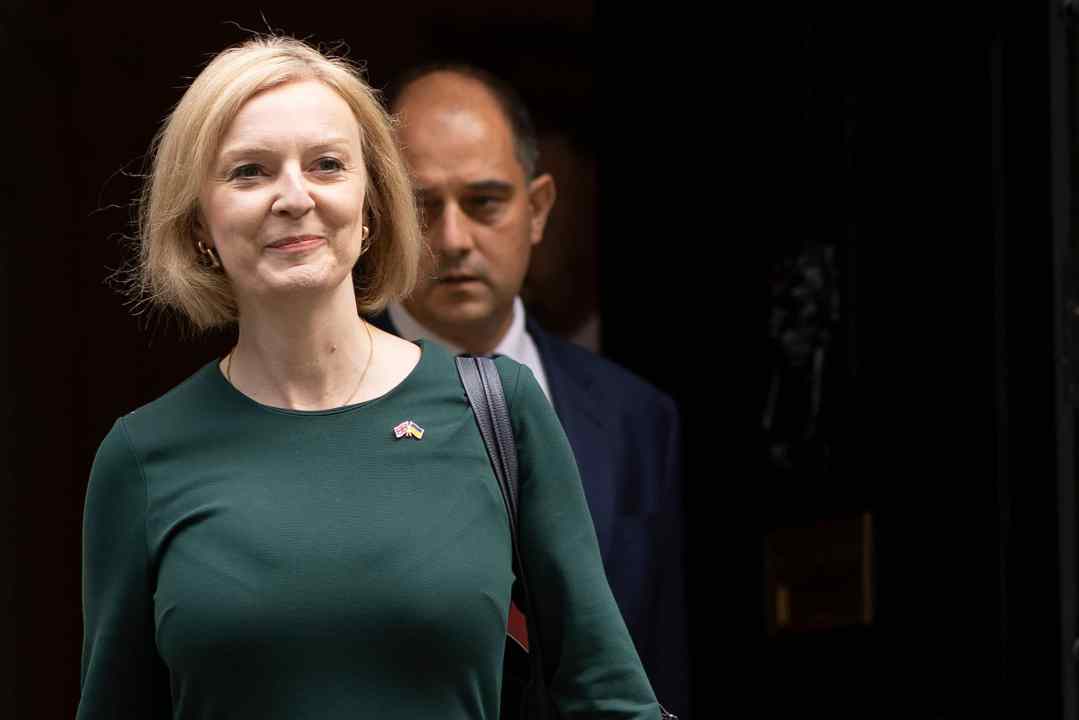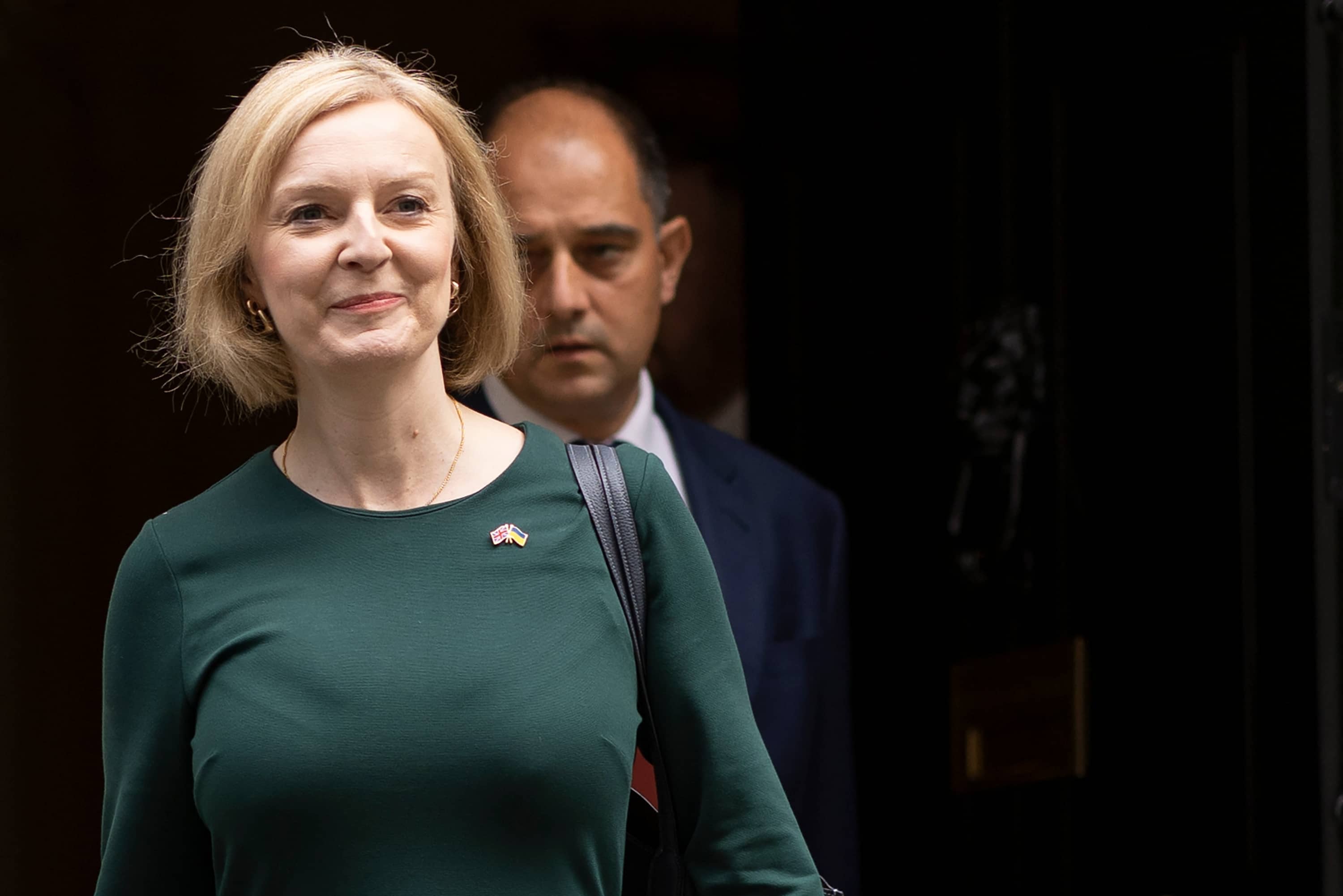When Liz Truss spoke from the steps of Downing Street on Monday, she declared proudly that she ‘campaigned as a conservative’ and would ‘govern as a conservative’. It was a dig at her leadership rival Rishi Sunak, who she beat by 15 percentage points, and who she accused throughout the campaign of having lost his way over tax hikes during his time in the Treasury. He insisted this was the path to fiscal responsibility; she insisted it was the path to recession.
Yet Truss’s first policy announcement of her premiership – and quite possibly one of the biggest announcements she’ll make as Prime Minister – is not one you can call ‘conservative’. To tackle rising energy bills, Truss has decided to use one of the most popular (and radical) tools from the socialist economic handbook: price controls.
What is most remarkable is that Truss and her team are holding up price controls as the solution to the energy crisis: a concept that has led to devastating consequences in the past
Truss confirmed the details of her plans today in parliament. She has binned energy price cap policy and superseded it with the ‘Energy Price Guarantee’. Ofgem’s job – setting the energy price cap to reflect the wholesale price of energy while guarding against so-called ‘runaway profits’ for energy companies – will be transferred to the government instead, which will set the unit price energy companies can charge consumers. So for the foreseeable future, politicians will determine what the public pay, rather than an independent body.
And the first call has been made: from 1 October, energy bills for the average household will be frozen at around £2,500 for the next two years. For businesses and charities, the same cap will apply for six months, and then more targeted support will be implemented. Green levies, totalling roughly £150 of average household bills, will also be scrapped.
Of course, the cost of energy is not actually ‘frozen’ – it is in no politician’s power to set the global price of energy. The extra costs will be covered by the state, the consequences of which will fall on taxpayers at some point down the road. And it’s going to be very expensive.
But we’ll have to wait to find out just how many tens – or more likely hundreds – of billions of pounds the government thinks its intervention will cost. The details will come, Truss said, later this month when Chancellor Kwasi Kwarteng presents his first fiscal statement. A less generous package for households and businesses was estimated earlier this week to be approaching £200 billion – and there will no doubt be some calculations and estimates from independent bodies ahead of the Chancellor’s statement. But even once the official estimate is announced, plenty of unknown factors mean fluctuation is inevitable. The recent fall in wholesale gas prices will provide some hope that these policies will cost less overtime than expected. But further dwindling of energy supplies this winter or an extension of the Energy Price Guarantee could easily see the total amount rise – possibly by quite some margin. If energy costs head towards the higher end of predictions (Cornwall Insights thinks wholesale prices would have taken the now-defunct energy price cap to £6,600 next spring) the government will have a colossal bill to pay.
The risks here are numerous. Having lambasted Sunak’s £400 energy handout to all households (which Truss’s government will retain), it is impossible to deny that freezing energy bills is a monumental handout to the UK’s richest, who will have the biggest houses to heat and who could afford the (much) higher bills – and by all accounts should be paying them rather than receiving subsidy.
The distortion of the price mechanism also heavily increases the risk of blackouts this winter. We have a global shortage of energy – an ugly reality that domestic governments can do nothing about overnight. Truss’s decision to lift the fracking moratorium signals that the government wants to increase domestic energy production, but the policy change is unlikely to produce any quick or meaningful uptick in supply as local areas – which get the final say on whether fracking goes ahead – remain deeply opposed. So, we all need to use less energy this winter. The key has always been to make sure this happens in a safe and sustainable way, especially for the most vulnerable households.
But by covering so much of the cost, Truss’s government has removed a lot of the incentive to cut back energy usage. Indeed, some people will probably increase their energy usage as bills will be so heavily subsidised by the state. The government’s plan to craft a public awareness campaign around how to use less energy this winter raises questions about the extent to which politicians understand their own policy: have they not made the connection that capping costs makes people more likely to whack up the heat? Or are they well aware of the risk, and plan to ask the public not to take advantage of the subsidies they’ve held out on a silver platter?
But perhaps what is most remarkable is that Truss and her team are holding up price controls as the solution to the energy crisis: a concept that has led to devastating consequences in the past. Price signalling is necessary for any functioning market; setting the price of a commodity where politicians would like it to be, rather than where it is, only distorts the market further and is guaranteed to lead to misuse of energy, which increases the likelihood that Truss will have to U-turn on her promise not to mandate rationing this winter.
As James Forsyth notes in his cover piece for the magazine this week, the government thinks that if the energy support package is so big and so generous that no politician or party can possibly claim it doesn’t go far enough, this will give Truss a window of time – perhaps several months – to get on with her other free-market ambitions, such as rolling back the Johnson-era tax hikes and implementing some pro-growth reforms. Truss also expects the freeze on bills to take the wind out of the sails of inflation, curbing it by ‘4 to 5 points’, as household energy bills and petrol prices have been making up a big chunk (though not a majority) of CPIH inflation.
But at what cost? There are the hard numbers: Truss’s government does not seem remotely shaken by the idea of borrowing hundreds of billions of pounds to get through this latest crisis – another crystallising moment for the Tories and their new, cosy relationship with debt. And then there are the costs that are harder to measure, such as the things which have been ideologically ceded to the other side: the economically dubious idea that price controls can be implemented without consequences; that a politician is better placed to set the price of energy – and ultimately allocate resources – than an independent body (or indeed the market); and that free-market solutions are for the campaign trail while socialist policies are for governing.








Comments